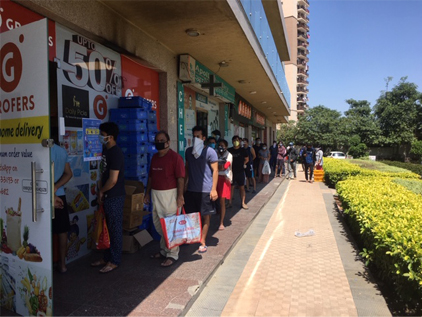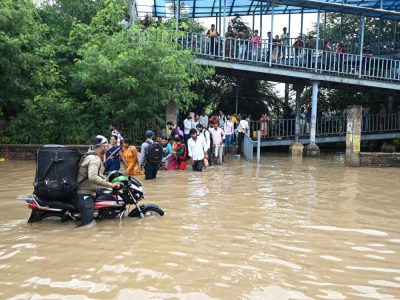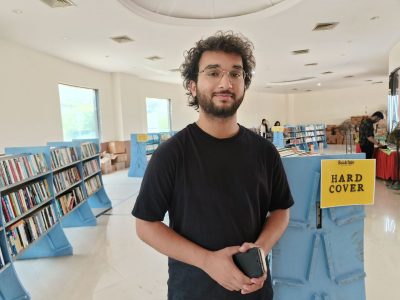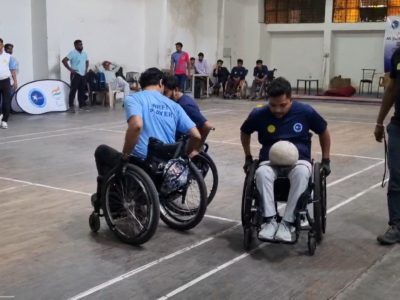Life has been quite pleasant in the multi-storey housing complex in Noida’s Paras Tierea, despite being completely sealed for two days after a couple of Coronavirus cases were found
People find ways to keep themselves busy even when there’s not much to do. I have been in my house alone for a week now and fairly busy even in this enforced solitude. It’s sometimes hard to pass the time but looking back on the last week, I realise that the days passed by in a flash.
I live in Paras Tierea, Sector 137 of Noida. It was in the news recently because a couple residing in Tower 16 of the complex tested positive for Coronavirus on 27 March. They were taken to a local hospital and the matter was officially made public to contain the spread.
The whole society was sealed for two days. The district administration imposed Section 188 of the Indian Penal Code (IPC) and I had ample time to read it up to understand what it specifies, a task I would never undertake on a busy day! It reads:
‘By an order promulgated by a public servant lawfully empowered to promulgate such an order, he is directed to abstain from a certain act, or to take certain order with certain property in his possession or under his management…and if such disobedience causes or tends to cause danger to human life, health or safety, or causes or tends to cause a riot or a fray, shall be punished with imprisonment of either description for a term which may extend to six months, or with fine which may extend to one thousand rupees, or with both.’
Further:
‘It’s not necessary that the offender should intend to produce harm, or contemplate his disobedience as likely to produce harm. It is sufficient that he knows of the order which he disobeys, and that his disobedience produces, or is likely to produce, harm.’
Once this sunk in, I looked out from my balcony. I realised it was a surreal situation to be in. It felt a bit like living in a ward of leprosy patients –an important distinction being that such sufferers can socialise amongst themselves.
We were quarantined from each other and the outside world for two days: No one went out, no one came in. All the residents were advised to stay indoors and not venture out at all. It felt like Coronavirus had breached the citadels and is now lurking around. It could be anywhere, sly and small, sparing no one, therefore no one is safe. So to keep the family safe, people locked themselves in their houses for the 48 hours.
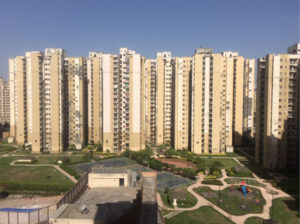
The usual sounds that emanate from the neighbourhood were conspicuous by their absence. An eerie silence engulfed Paras Tierea, as if people were locked inside a bunker, while Supermarine Spitfire, an agile, elliptical-wing legendary fighter plane of WW-II, was silently carpet bombing.
Two pleasant middle-aged women came calling the next day. They were polite, had a register in their hand and were making pointed inquiries. “I stay alone and I have no symptoms,” I told them, without opening the iron-mesh door. They were relieved and made no further inquiries.
“You too should take care of yourself, and maintain social distance,” was my unsolicited advice. “Work!” she said, “To keep you all safe.” They must have been teachers in a government school, roped in to survey the 3,000 flats in the complex and try to figure out if there were others with symptoms of the infection –one of the most important and obvious signs of the infection being fever.
They reminded me of peacekeeping forces, performing the selfless act of mine-sweeping to make the area safe for all. “I sleep in a different room from my family,” said one of them in Hindi as a response to my parting greetings, “Apna bhi khayal rakhna.”
So for the next two days, the sky was blue, reminiscent of the colour it wears in Scandinavia. Birds chirruped louder than usual, and the fluttering of wings of pigeons who had made a home on my balcony was deafening and irritating. I shooed them away more than a dozen times, trying to make the message clear: Get the hell out of here!
Periodically, I had many Skype chats with my scattered family. They spoke to me as if I was held captive in a Nazi camp and I’m braving it all alone. I used the opportunity to make myself available to my friends in Europe–Milano, Greifswald, London, Berlin–who are going through a similar period of isolation.
Frankly, I was amazed at the way my neighbours complied with the sealing order –staying true to its spirit– a contrast to the melee we could see on screens at Anand Vihar. For they saw all fellow humans as potential threats to their mortal being. Even chewing tobacco and cigarettes were not smuggled in. So on 30 March, when the grocery shop inside the gated premises opened for the first time in three days, people came out of their houses to buy essentials. From my balcony, they looked like anxious ants emerging from their holes. People stood a metre apart (well, roughly), not all with faces masked, some wearing surgical gloves. Only five people were allowed inside the shop at a time. I was late, so had to wait for an hour before I was let in. There was nothing worthwhile left. Milk, vegetables, cigarettes, curd, eggs, bread were all gone. I brought a tetra pack of soya milk for my morning tea.
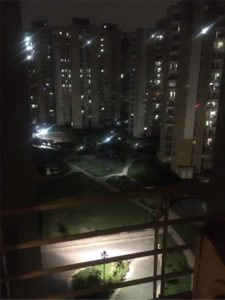
On my return, I left the shopping bag in the balcony for a day, lest I had transported the nasty virus home. I was judicious about what I ate and stuck to small portions. Yoga stood me in good stead during this long phase of solitude. I was almost tempted to believe I’m good company! Perhaps if another person had been living with me, he or she would have testified to that. Or not.
As for Noida as a whole, the reality of the pandemic hit home on 26 March, when we heard that as many as 19 cases of Coronavirus infection were linked to one company called Ceasefire, which has an office in Sector 135. Sources in the local health department of Gautam Buddh Nagar district — in which Noida falls — said that an auditor from the UK, John Humphreys, had come early in March to interact with the staff. He was obviously the source of infection. Most of the employees stay in multi-storey housing complexes like Paras Tierea, and have since been reported infected. A list of 161 employees of Cease Fire is with the authorities, they are being quarantined to check the spread of the epidemic.
The carrier might not just have been Humphreys, who’s aged 70 years. Cease Fire’s managing director had also visited London recently. He, though asymptomatic, tested positive. However, Humpreys, back in the UK, has denied showing any signs of Covid-19, and has not even been tested as yet. An FIR has been filed against the company for not disclosing Humphreys’ visit.
No new cases have been reported as yet and two days have passed since the quarantine was officially lifted, but residents are voluntarily observing the restrictions. Cars are not allowed in or out as yet unless it’s a medical emergency. You can walk out on foot only to buy provisions in the neighbouring urban village called Shahdara after duly writing your name in a register. Cars are allowed to leave only if they have passes issued by the district administration.
The good thing is that people are not trying to break rules, they seem to be coming to terms with the lockdown. And even spotting opportunities for profit! I overheard a chain smoker standing in the grocery queue, tell a friend he was talking to on phone, “I can get you cigarettes, will cost an additional Rs 100 per pack.”

